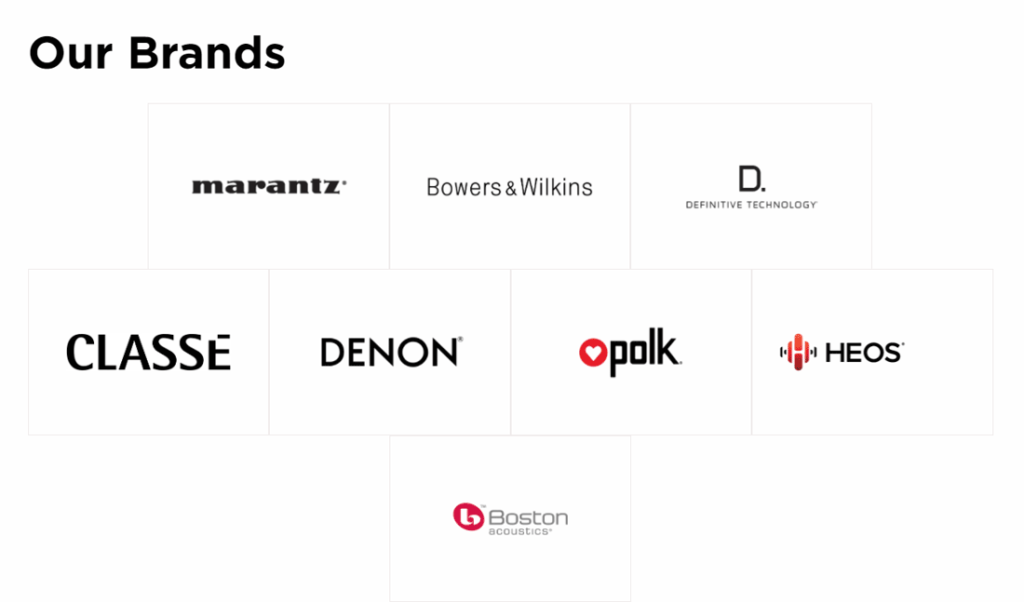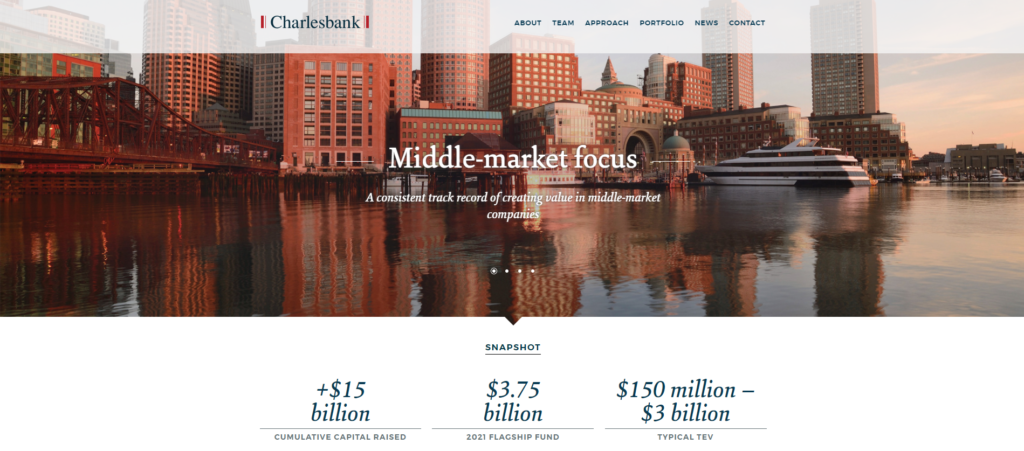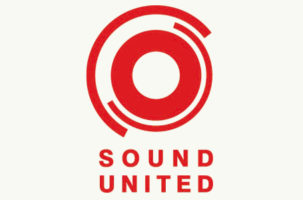Moody’s Investors Service, one of the top credit rating agencies in the world, said this month that DEI Sales, Inc., dba Sound United, has been assigned a credit rating of B2 and a probability of default rating of B2-PD. In addition to this, they are assigning another B2 rating to Sound United’s proposed $380 million senior secured first lien term loan due in 2028. The forward looking “outlook” for Sound United and this rating is “stable.”
What does a B2 rating of Sound United mean?
You may want to think twice about putting your retirement savings into Sound United bonds or perhaps investing in shares of the company. The reason is that after taking a long hard look at the company, one of the country’s preeminent rating companies assigns Sound United credit a B2. This means that Sound United is below investment grade…
Moody’s uses a fairly simple scale, so simple that they had to add other elements to help more precisely categorize companies’ true standing. That scale, in a nutshell, categorizes companies as either A, B, or C grade…with companies rated A being “upper medium” investment grade; while those earning a C designation are “the lowest rated and are typically in default.”
A Simple Scale for Easy-to-Understand Ratings
This scale is further expanded with multiple letters, i.e. Aa and Aaa on the top end, with the same method used in all of the grade levels. Again, C is the absolute bottom. Finally, within each grade rating, the company further provides a numerical scale – 1, 2, 3 – for further positioning as, for example, a high “A,” a medium “A,” and a low “A” respectively.
Sound United has been assigned a B2 rating, and Moody’s defines this rating as: “Obligations rated B are considered speculative and are subject to high credit risk.” Banks and financial institutions uses Moody’s (and others) ratings to determine the level of risk of offering loans to them. A lower credit rating means the bank or financial institution will demand a higher interest rate to offset the higher risk of loaning to them, while a higher rating will draw a more beneficial lower interest rate.

Why is Sound United Rated So Low?
Why such a low rating? Moody’s provides commentary explaining their thinking behind their ratings. Interestingly, Moody’s started by analyzing the $380 million first lien term loan the company is apparently contemplating. This loan, if Sound United goes forward with it, is expected to be used by the company to refinance an existing $322.3 million loan. Why should Moody’s care about this? Think about it this way, Sound United is essentially signing up for a new credit card so they can take a cash advance against the new credit card…to pay off an old credit card. This is not a strategy that a financial adviser would advise you to take with your personal finances. Rather, they would most likely prefer you pay down your debts.
Also, Sound United plans to distribute another $52 million from that new debt to company shareholders in the form of a dividend distribution. Sound United is owned by private equity powerhouse Charlesbank Capital Partners. As their principal shareholders, that money that Sound United is borrowing will be funneled to them.
Utilizing Debt to Pay PE Owners; Adding More Debt for the Company
Moody’s also notes that Sound United plans to enter into an agreement for a new $75 million ABL (asset based lending) revolving line of credit that will be due in 2026. This was also a factor considered by Moody’s as it increases their overall debt level, but also ties up assets.
There were several other concerning factors as well. For example, Moody’s notes that the company’s total debt/earnings ratio is a 3.9 for their fiscal year that ended in March 2021. This debt level of almost four times earnings is not unprecedented…but high. Most creditors like to see this ratio no higher than 2.0. And this reading factors in the impact of the recent Bowers & Wilkins acquisition.

Moody’s: Sound United’s Products are ‘Mature’
In addition to this, the core product categories for the company are – in Moody’s estimation – all consumer discretionary items which gives them “exposure to cyclical consumer spending and changes in consumer preferences and technology trends.” Furthermore, the analysis notes that the two largest categories – “the company’s largest revenue contributors” – are component audio speakers and AV receivers. What’s wrong with that, you ask. Moody’s calls these product segments “mature segments of the home audio market [that] are exposed to the increased penetration of sound bars, wireless speakers, and all-in-one devices.”
Moody’s has always had a bit of a wry opinion of the consumer electronics business, saying it “is highly competitive” and in this case features “larger players” than Sound United with “greater financial resources.” But even beyond the “mature” product categories that they play in, Moody’s also says that Sound United suffers from “supplier and customer concentration.” Also noted were “governance” issues, such as “high financial leverage, growth through acquisitions strategy, and debt-funded shareholder distributions.”
They See the Positive Factors of Sound United’s Position as Well
However, the credit rating agency was not unaware of the many positives of Sound United’s situation. They noted, for example, its “solid foothold in its core audio products with well-known brands in key product categories.” Also, the company benefits from the fact that its products “garner some support from a core end customer base including sound bars, wireless speakers, and all-in-one devices.” Moody’s even called out the positives of the B&W acquisition which added “a well-recognized brand in the premium audio category with better growth prospects than audio speakers and AV receivers.” I’m not quite sure what they are referring to as far as B&W’s growth potential – but in general it was considered a positive element in their credit rating.
Moody’s expects continued good consumer demand at least [through] the first half of calendar 2021.”
Moody’s report on DEI Sales, Inc. (Sound United)
Also positive is that consumer demand for Sound United products has been “very high” over the last few quarters. According to this report, Sound United reported revenues grew 22% YoY in the third quarter of 2020. Not only that but “adjusted” EBITDA grew 40% in the same period.
Hard to Predict the Future with a Lingering Pandemic
Moody’s says that there are factors that could cause them to reassess Sound United’s rating in the future. However, the ongoing coronavirus pandemic makes predicting the future extremely difficult. A new wave of infections could force new lockdowns and further economic disruption. On the other hand, a smooth reopening of the country could cause growth rates to take off at an even greater pace than now expected.

Sound United is one of the largest makers and sellers of audio gear and owns such top brands as Denon, Polk Audio, Marantz, Definitive Technology, HEOS, Classe, Boston Acoustics, and Bowers & Wilkins. It is majority owned by Charlesbank Capital Partners, with additional minority ownership by FS KKR Capital Corp (since 2020). The company has annual revenues of approximately $800 million according to Moody’s.
Learn more about Sound United and its brands at: soundunited.com.





So, don’t base your retirement fund on holding Sound United stock? I’ll stick with my low cost index funds.
This is interesting, as some people I know who were familiar with the failed SU purchase of Onkyo hinted that the money troubles that caused the disagreements and eventual collapse of the talks were not entirely one-sided. Of course at that time, I merely wrote such comments off as coming from parties affronted by being cast in a bad light. But, in hindsight, maybe they weren’t.